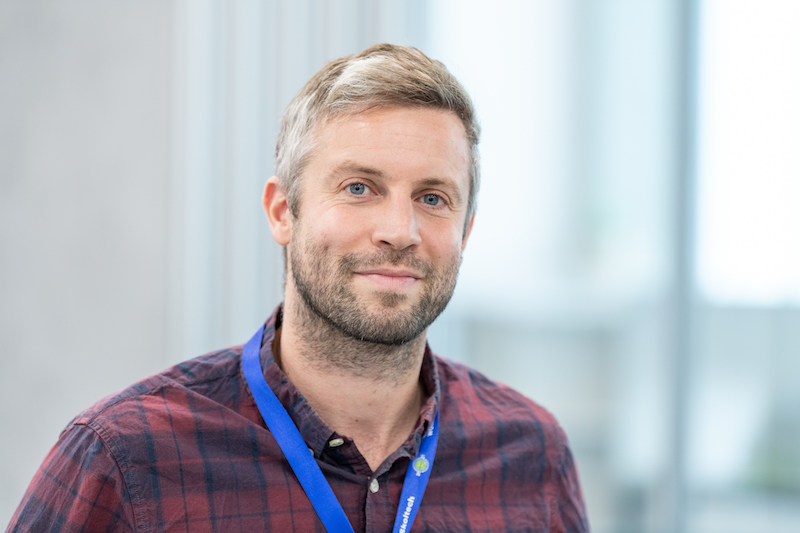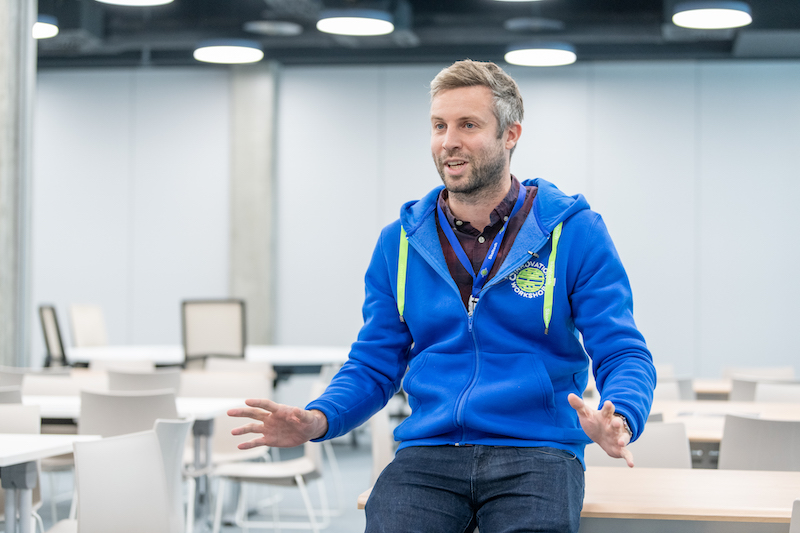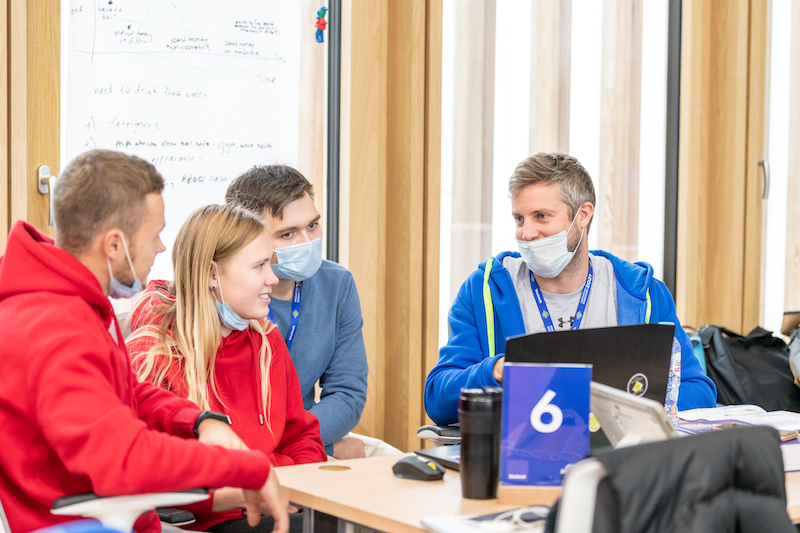Innovation Workshop mentor Johannes Mulert is a senior manager at the $5 billion sports apparel company Under Armour, where he heads all marketing activities in Europe, the Middle East, and Africa for men’s wear. We discussed how exposure to diverse, and at times conflicting, mentor input at IW pushes students to make informed decisions of their own and strive for the optimal balance between the technical content and presentation of their innovations. Johannes also shared his impression after meeting Russian students, commenting on their proverbial lack of visible emotion, as well as eagerness to learn and tendency to look up to the professor.
 Q: What do you think is the key ingredient in the Innovation Workshop formula?
Q: What do you think is the key ingredient in the Innovation Workshop formula?
A: As mentors, we’re really working with experts in their fields here, but they are not used to presenting to the outside world. So I think that the most important part of this workshop is to push the students out of their comfort zones. And this is what I really love here. It’s working with students that are not used to having mentor import and to standing in front of a big crowd. And they are learning so much in those four weeks, which I think is truly inspiring for them — but also for us as mentors.
Q: How does mentor diversity play into the IW format?
A: We have mentors — and this is amazing — that come from all areas. They have different experiences and cultural backgrounds. And I think this is also something the students see. At times you tell them something, and they say, “Oh, but another mentor told me almost the opposite thing.” And this is the real world, right? This is what you see in reality. I think this is what they need to learn, too: that they need to adapt to different opinions.
They will be in an environment, in an economy where they are pulled in different directions. They need to find their own way. Either it is the middle way, or at times they need to make up their minds. You know, who do they believe, what do they think is the right way? It’s great to have different mentors from different backgrounds giving students potentially different advice.
But I think in one thing all mentors are really similar. I think we all have the message that the students need to go out there and sell their product. They need to be engaging and have amazing prototypes.
Q: How would you say your background affects the angle that you’re taking as a mentor?
A: My background is not in technology but in marketing and business. I’m responsible for men’s marketing at Under Armour. So I’m constantly giving presentations. I’m presenting for Anthony Joshua, Mick Schumacher — all the athletes and their management out there. This helps me advise students on how they can best create a business case and sell their products to us mentors.
Q: Can you describe one student’s “Oh, but the other mentor doesn’t think so” moment?
A: Sure, there were some presentations that were very technical. And I said: “Well, you need to simplify that. It’s way too much detail, you know. Put it in the appendix. Make a show out of it. Show me what you’ve got.” And then maybe I liked another presentation that was more marketing-related, that was more into selling the product, but another professor or mentor said, “You gotta add in a few more technical slides.”
Just like I said earlier, finding the middle way is so important. They need to have both. They need to have a solid business case and the technical information on the product. So really merging those two things together is what’s gonna help you win the pitch in the end.
Q: Was there any project that stood out to you?
A: One group was trying to identify bruises on the skin to help forensic experts recognize domestic violence, for example. A super relevant topic, especially during COVID-19, when it increased. I loved that project. But the problem was, at the start they could not frame that issue in 10 sentences. They just started with all the technical details right away.
I said, “It’s the easiest problem to visualize. Get a case that was actually happening that you could have solved.” And they came up with the O.J. Simpson case, where basically an NFL player killed his wife. With this technology, they would have solved the case, because it would’ve identified when exactly that happened. And then he wouldn’t have had an alibi. I think this problem statement made it so relevant that I as a forensic expert or I as an investor would probably buy into it.
Q: How do you feel about the students you met at IW?
A: I’m from Germany. The students I’ve been with are loud. They don’t pay attention. They are very active. They have lots of crazy ideas that might not have anything to do with the issue. They don’t listen to you. But the Russian students are super attentive. They really want to learn, which I think is amazing.
So when you’re explaining something to them, everybody is looking at you — but they don’t move. You don’t see any reactions in their faces, so you’re constantly asking, “Does that make any sense?” Because in Germany, I would expect a nod or a laugh or someone not paying attention. You don’t see that in the Russian students. They are not displaying emotions toward the mentor.
That’s really different, and actually difficult for the mentor at first, because you’re not getting feedback. But then after a while, probably at the second session, once you build up a little bit of trust and they know you know what you’re saying, they start engaging with you and they are so thankful, which I really love, which you also don’t get from the students in Germany and the U.S., at least where I’ve been. They’re thanking you a million times, writing everything down. They have this eagerness to learn, which I find super inspiring.
Contact information:
Skoltech Communications
+7 (495) 280 14 81


